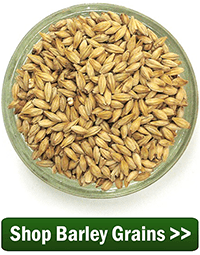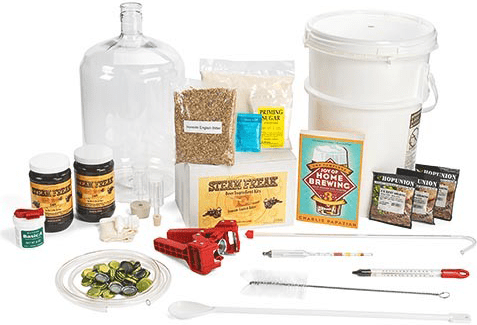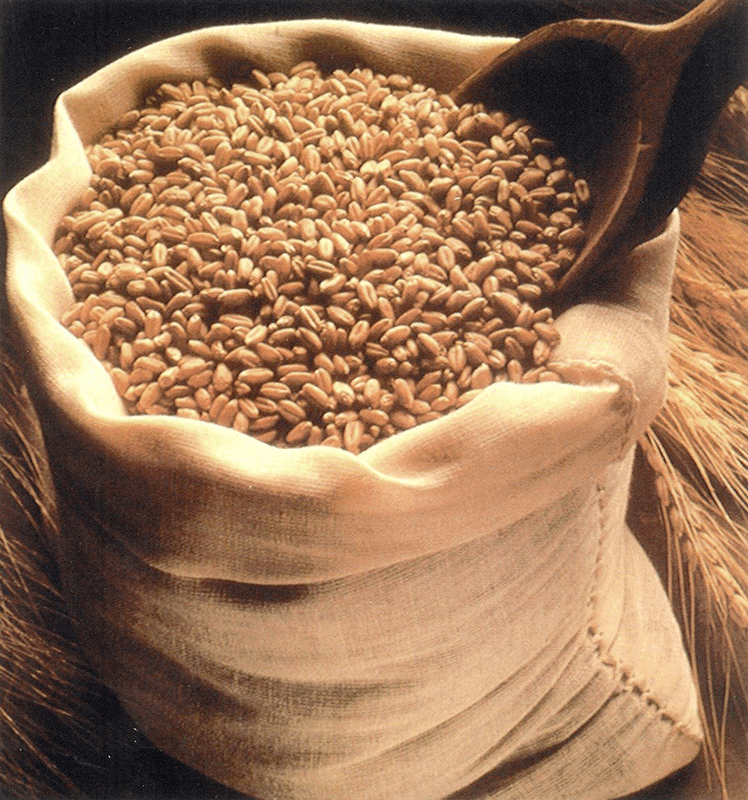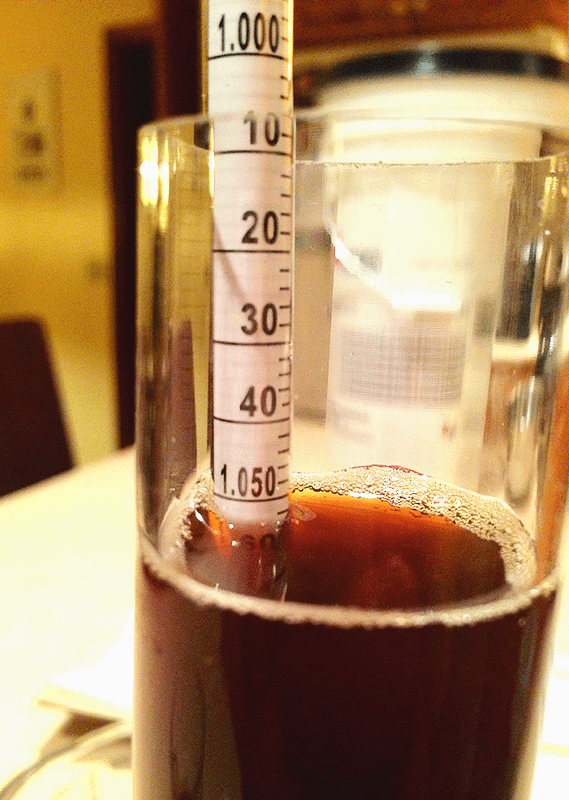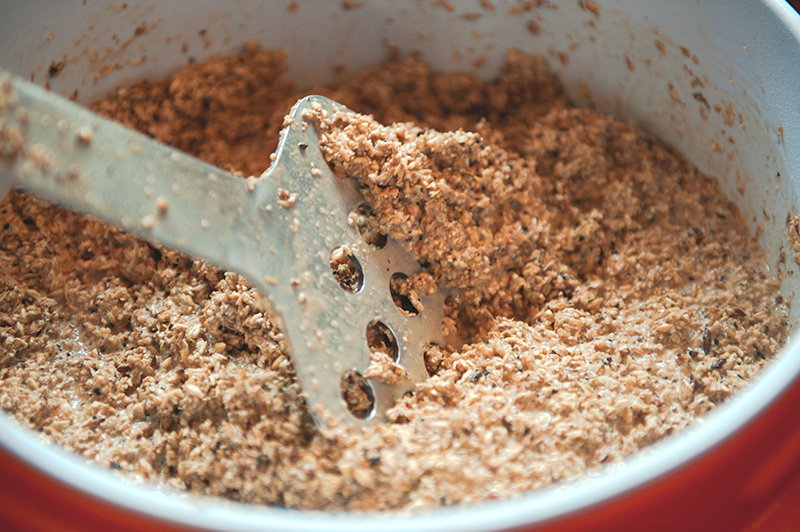 A stuck mash can really throw a wrench into your brew day. Things are going great: you planned your beer recipe, purchased all your homebrewing ingredients, mashed in, and pH and temperature are right where you want them. Then you start the sparge and collecting the wort from your mash tun, and all you get it a trickle – then it stops completely. What’s supposed to take an hour extends into two hours or more as you try to figure out how to separate the wort from the grain… what to do!
A stuck mash can really throw a wrench into your brew day. Things are going great: you planned your beer recipe, purchased all your homebrewing ingredients, mashed in, and pH and temperature are right where you want them. Then you start the sparge and collecting the wort from your mash tun, and all you get it a trickle – then it stops completely. What’s supposed to take an hour extends into two hours or more as you try to figure out how to separate the wort from the grain… what to do!
The best thing to do, of course, is everything in your power to avoid a stuck mash. No one wants a sparge that takes too long. In the event a stuck mash occurs, however, more drastic action is required. With that said, here are tips for preventing a stuck mash and tips to fix a stuck mash.
Tips for Preventing a Stuck Mash
- Clean your mash tun between each use. This goes beyond just a soak in PBW. Take apart the various components of your mash tun and get in there to scrub ‘em out well.
- Don’t over-crush. When crushing the malted grains, make sure they aren’t crushed too finely. If there’s a lot of flour in the grist, it can really gunk up the wort outlets.
- Some grains tend to get sticky, especially wheat, rye, and oats. Add rice hulls to your mash to make sure that wort can flow without getting clogged. The hulls won’t affect the flavor, color, or gravity of your beer.
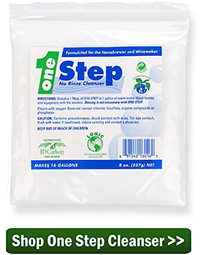
- Watch you water-to-grain ratio. The recommended ratio is 1-1.5 quarts of water per pound of grain. Some all-grain beer recipes call for a thinner or thicker mash. If your equipment tends to give you a stuck mash, lean towards the higher end of the range. Take good notes so you can build upon your previous experiences!
- Take your time. When your mash is complete, draw off the first runnings slowly, allowing the grain bed to set. Draw off too fast and the grain bed can compact on itself, creating a stuck mash.
How to Fix a Stuck Mash
- Stir it up. If you’re lucky, a quick, vigorous stir will be all it takes to fix your stuck mash. You’ll have to reset the grain bed, so draw off the wort slowly, gradually increasing the rate of flow.
- Clear that clog.
 It the stir didn’t fix things, chances are good that there’s a clog in your mash tun. Dump the mash into a spare fermenting bucket. Since you will eventually boil the wort, the bucket doesn’t have to be sanitized, but it should be clean. Take apart your equipment, clear the clog if there is one, return the mash to the mash tun and start over.
It the stir didn’t fix things, chances are good that there’s a clog in your mash tun. Dump the mash into a spare fermenting bucket. Since you will eventually boil the wort, the bucket doesn’t have to be sanitized, but it should be clean. Take apart your equipment, clear the clog if there is one, return the mash to the mash tun and start over.
- Use a colander. If you still can’t get your wort to flow, you probably need a new mash tun! To save your brew, pour the mash through a clean strainer and into your brew pot. The wort in the brew pot can be run through the strainer and the collected grains multiple times to improve clarity. This process is called a vorlauf.
To be sure, having a stuck mash can be a real pain. But don’t let them stop you from making great beer! If the sparge is taking too long you now know what to do to fix the stuck mash. Once it’s fixed, relax, have a homebrew, and take steps to prevent having stuck mashes in the future.
Do you have a stuck mash horror story? Share in the comments!

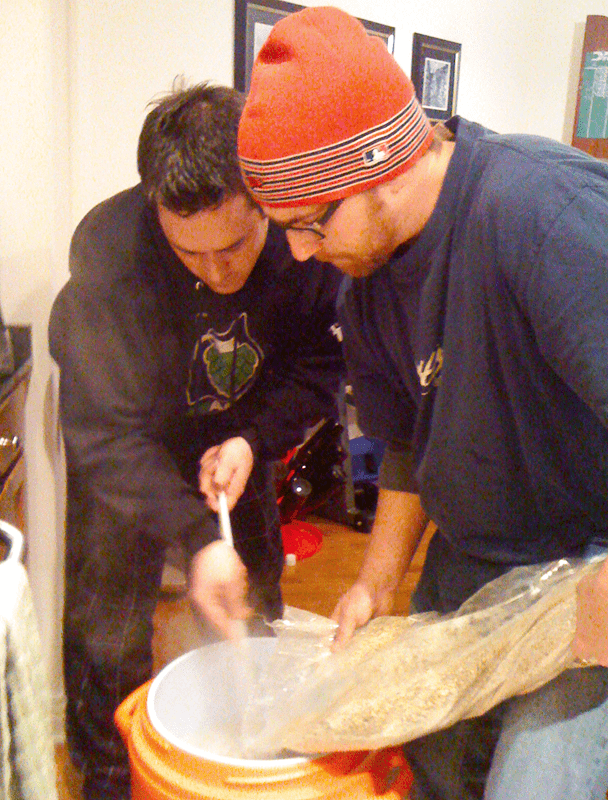
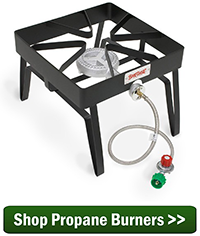




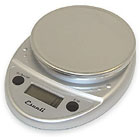




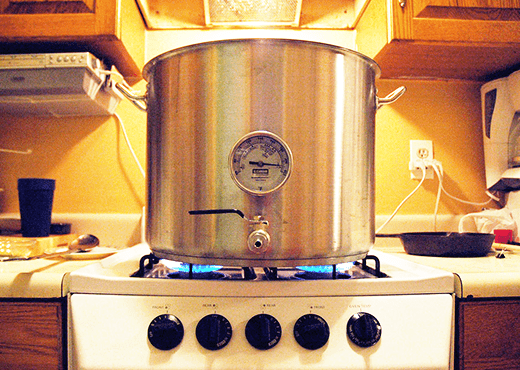 Sometimes it’s fun to brew outside of the BJCP style guidelines and to combine different beer styles to make something new and different – a hybrid beer style if you will. Today’s all-grain, rye porter beer recipe combines the roasted malt flavors of a porter with the spicy, tangy rye flavors of a rye pale ale.
Sometimes it’s fun to brew outside of the BJCP style guidelines and to combine different beer styles to make something new and different – a hybrid beer style if you will. Today’s all-grain, rye porter beer recipe combines the roasted malt flavors of a porter with the spicy, tangy rye flavors of a rye pale ale.